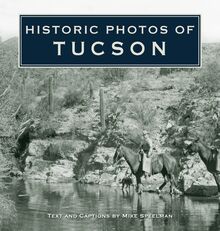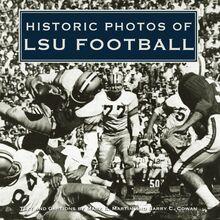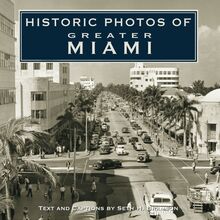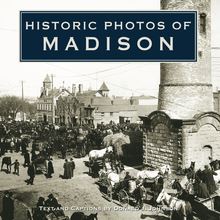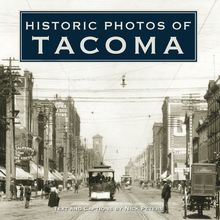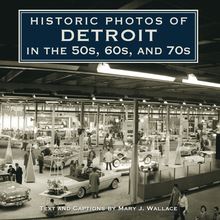Historic Photos of Orlando , livre ebook
175
pages
English
Ebooks
2007
Vous pourrez modifier la taille du texte de cet ouvrage
Obtenez un accès à la bibliothèque pour le consulter en ligne En savoir plus
Découvre YouScribe en t'inscrivant gratuitement
Découvre YouScribe en t'inscrivant gratuitement
175
pages
English
Ebooks
2007
Vous pourrez modifier la taille du texte de cet ouvrage
Obtenez un accès à la bibliothèque pour le consulter en ligne En savoir plus
Publié par
Date de parution
01 mars 2007
Nombre de lectures
0
EAN13
9781618586643
Langue
English
Poids de l'ouvrage
55 Mo
Publié par
Date de parution
01 mars 2007
Nombre de lectures
0
EAN13
9781618586643
Langue
English
Poids de l'ouvrage
55 Mo
HISTORIC PHOTOS OF
ORLANDO
T EXT AND C APTIONS BY J OY W ALLACE D ICKINSON
A view of Orange Avenue looking north from Church Street shows the First National Bank building at left and the side of Ivey s of Orlando on the right. Based in Charlotte, North Carolina, this department-store chain was founded by J. B. Ivey, a devout Methodist who required that the curtains on his store windows be drawn on Sundays, so that pedestrians would not be tempted by worldly matters on the Lord s day.
HISTORIC PHOTOS OF
ORLANDO
Turner Publishing Company
200 4th Avenue North Suite 950
Nashville, Tennessee 37219
(615) 255-2665
www.turnerpublishing.com
Historic Photos of Orlando
Copyright 2007 Turner Publishing Company
All rights reserved.
This book or any part thereof may not be reproduced or transmitted in any form or by any means, electronic or mechanical, including photocopying, recording, or by any information storage and retrieval system, without permission in writing from the publisher.
Library of Congress Control Number: 2006937035
ISBN-13: 978-1-59652-325-8
ISBN-10: 1-59652-325-5
Printed in China
09 10 11 12 13 14-0 9 8 7 6 5 4
C ONTENTS
A CKNOWLEDGMENTS
P REFACE
T HE R ISE OF THE P HENOMENAL C ITY (1868-1908)
T HE C ITY B EAUTIFUL B LOOMS (1909-1939)
F ROM H IGH -F LYING M ILITARY C ENTER TO H AVEN IN THE S UN (1940-1959)
A MERICA S V ACATION L AND (1960-1973)
N OTES ON THE P HOTOGRAPHS
A woman shows off the popularity of equestrian sports in the Orlando area in a Department of Commerce image from 1946. During the mid twentieth century, the Canadian-born horseman Ben White made Orlando the world s foremost training center for harness racing, at the now-gone track named for him, Ben White Raceway.
A CKNOWLEDGMENTS
This volume, Historic Photos of Orlando , is the result of the cooperation and efforts of many individuals and organizations.
Thanks, as always, to the work of fellow historians Mark Andrews, Ben Brotemarkle, Gary Mormino, Tana Porter, Steve Rajtar, and Jim Robison for information and inspiration, and to the staff of the Orange County Regional History Center and the history warriors of Orlando Remembered, happy guardians of a proud heritage. I am grateful to Martha Link Yesowitch for her keen editorial assistance and to Glenn Link for support and wise counsel.
Few venerable sayings are as true as the one about a picture and a thousand words. Historians and residents of Florida owe a great debt to the creators and staff of the Florida Photographic Collection at the State Archives in Tallahassee, the source of the fascinating images in the pages that follow and one of the state s great treasures (see www.floridamemory.com ).
The state s photo archive has benefited from components such as the MOSAIC Photo Collection, with more than 1,000 images of Jewish life in Florida that have been placed in the Florida Photographic Collection by the Jewish Museum of Florida in Miami. Such sharing of images and information enriches the heritage of a great and varied state.
-Joy Wallace Dickinson, Author
-------
The goal in publishing this work is to provide broader access to a set of extraordinary photographs. The aim is to inspire, provide perspective, and evoke insight that might assist officials and citizens, who together are responsible for determining Orlando s future. In addition, the book seeks to preserve the past with respect and reverence.
With the exception of touching up imperfections caused by the vicissitudes of time and cropping where necessary, no other changes have been made. The focus and clarity of many images is limited to the technology of the day and the skill of the photographer who captured them.
We encourage readers to reflect as they explore Orlando, stroll along its streets, or wander its neighborhoods. It is the publisher s hope that in making use of this work, longtime residents will learn something new and that new residents will gain a perspective on where Orlando has been, so that each can contribute to its future.
-Todd Bottorff, Publisher
P REFACE
Those of us who have had the opportunity to live for a spell in the older neighborhoods of Orlando, Florida, know this familiar scenario: Friends and family members come to visit, and along with the obligatory and much-anticipated excursions to the area s famous theme parks, the host or hostess may slip in a ride around town.
Passing over brick-paved streets and beneath old oaks draped with Spanish moss, the Orlando resident will show off many lakeside scenes and plenty of houses with roots early in the twentieth century-houses that would be at home in any pretty town in America. There are Craftsman-style bungalows, Spanish Revival mansions, and even a few Victorian gems-homes that have harbored a city s hopes and dreams for generations. And it s a good bet that at some point the out-of-towners will invariably exclaim, My goodness, I had no idea Orlando looked like this!
They have no idea because, although it often seems that everyone in the world has visited Orlando, a relatively small percentage of these good folks see the actual city. Perhaps the biggest challenge facing those of us who enjoy rummaging through the city s history is making the case that Orlando does in fact have a history B.D., or Before Disney, as local history buffs like to call it.
Walt was following a historic trend, of course, when he picked the Orlando area to be the home of Walt Disney World, the second and much larger attraction that in 1971 followed his Disneyland in California. Indeed, the earliest non-Indian settlers in Central Florida in the two decades before the Civil War were drawn by exactly what attracted Disney when he looked down at Central Florida from an airplane in November 1963 and saw the intersection of two major highways and, more important, empty land. Lots of land, under sunny skies above.
Wild Florida has always had as much in common with the Wild West as with the Old South, and in the mid and late nineteenth century, the palmetto prairies at its center beckoned to cattlemen from Georgia and elsewhere. South they rolled on wagons and on steamboats heading up the great St. Johns River, in search of a fresh start in the frontier land of the flowers. Very soon, folks from the north who heard of the joys of a Florida winter also traveled south in search of better health. Although its role as a tourist mecca has come in the years since Disney s opening, the Orlando area has long had its share of sojourners from colder climes.
Some, such as Western photographer Stanley J. Morrow, whose work you ll see in the pages that follow, left a legacy in images that offers proof indeed that Orlando existed and prospered long before there was a Walt Elias Disney, God bless him.
And by the way, think about this as you start your photographic journey through Orlando s past. Walt, who was born in 1901, narrowly missed being a Floridian himself. His parents were married not far from Orlando in Lake County, Florida, in 1888.
Especially during the Florida land boom of the 1920s, gates indicating new subdivisions sprang up all around Orlando and Central Florida, bearing lavish names designed to lure Northern investors. This 1915 sign for Bellevue Heights is especially amusing when one considers that the Orlando area s elevation is about 110 feet above sea level. With a few exceptions, a slight rise in the road constitutes a height in Orlando.
T HE R ISE OF THE P HENOMENAL C ITY
1868-1908
Orlando, now synonymous with vacation fun, got its start in a serious way in 1838, as a stockade in the Seminole wars. From those beginnings sprang a settlement named for Aaron Jernigan, a rough-and-ready militia captain and Orange County s first representative in the Florida legislature.
Life on the Florida frontier was not for the faint of heart. I have seen seven big wolves come right in front of the house and howl, Jernigan s daughter Martha later wrote of her youth. But the few founding families stuck it out. In 1850 Jernigan was granted a post office, and in 1856 the community became the county seat. About a year later, it changed its identity to Orlando, a name that remains mysterious.
The traditional story tells of an Orlando Reeves, a brave soldier slain by Seminoles, but research suggests he s a figure of legend only. Other accounts say pioneer James G. Speer was motivated by his love of Shakespeare when he suggested the name in 1857. Whatever the origin, in the years after the Civil War, when the railroad arrived, Orlando seemed to many a fine place to reinvent oneself on a sunny stage.
When newsman Mahlon Gore arrived from Iowa in 1880, he noted that Orlando had four stores, one hotel, one blacksmith and livery stable, and a population of about 200. Four years later, Gore s Orange County Reporter counted more than eight times that many in the place local boosters soon dubbed the Phenomenal City. Orlando s first real estate boom took off, fueled by ads in Britain luring the younger sons of the gentry to become gentlemen citrus growers-a prospect that proved a good deal more difficult than it sounded, especially after the monster freeze of 1894-1895 that sent many packing back to England.
The groves and the city would recover, however, and Orlando bustled on into the new century with about 2,500 souls. In 1899, the city council decided it was time to number Orlando s houses, and a beautification movement inspired a contest for a fresh city motto in 1908. At the suggestion of Mrs. W. S. Branch, Sr., Orlando became the City Beautiful. Things had changed plenty since Martha Jernigan literally saw wolves at her door. For many new residents from colder climes, the welcome was warm in Orlando.
Florida Crackers, reads a handwritten description of two men in an oxcart in early Orlando on the reverse of this stereograph-card image. Unlike usage sometimes considered an epithet, Cracker in Central Florida connotes hardy pioneer r


